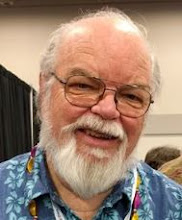I described the case for which I served on the jury in the post above this one - here.
This case would have been fairly straight-forward, easy to resolve, and would not have been brought to trial if there had been more witnesses to the drinking, to the driving, and to the freeway incident. But there were not - so the jury had to sort out guilt or innocence according to the instructions provided by the judge.
In order to find the defendant guilty of the charge, the People had to prove that the defendant:
1) was driving the car,
2) had a blood alcohol level of 0.08% or higher at the time of the accident,
3) committed an illegal act or neglected to perform a legal duty, and
4) the above conditions caused bodily injury to another person.
The evidence and testimony showed conclusively that he was driving the car, had a blood alcohol level above 0.08%, and that an injury resulted from the incident.
The big stumbling block was if he had committed an illegal act (defined explicitly in this case as turning the car unsafely without using his turn indicator) or had neglected to perform a legal duty (to exercise ordinary care at all times and maintain proper control of the vehicle).
We spent about 4 hours of the 6 hours we deliberated discussing the above issue.
In the end, it came down to reasonable doubt. We had only the testimony of the defendant that the fiancee grabbed the wheel and caused the accident. But he had lied to the police, and apparently had lied in his testimony about the number of drinks he had consumed. Should we believe him? If we did believe him, then we decided that he did not commit an illegal act or neglect his legal duty, and was therefore not guilty of the charge. We thought that this was a reasonable conclusion regarding the cause of the incident.
What else might have happened? The jury speculated that he could have been angry at his fiancee and turned the wheel himself, resulting in the incident and the injury. If he had done this, he would be guilty of an illegal act and neglected his legal duty. But there is no evidence or testimony that he did this - it was speculation. But the incident happened one way or another - something had happened, and this speculation was a reasonable conclusion.
So we had two reasonable conclusions - one that was exculpatory, the other that damned the defendant. The jury instructions provided by the judge said:
"...if you can draw two or more reasonable conclusions from the circumstantial evidence, and one of those reasonable conclusions points to innocence and another to guilt, you must accept the one that points to innocence..."
Based on the judge's instruction, we decided that the defendant was not guilty of the charge as drawn - one conclusion pointed to innocence and we had no other evidence or testimony about the cause of the incident. We the jury had reasonable doubt concerning his guilt on this higher charge.
There was a lesser charge to be considered if we found the defendant not guilty of the higher charge - and we found the defendant guilty of driving with a 0.08% blood alcohol level.
We had to wait about an hour between the time we decided on the verdicts and filled out the forms, and when we went to the courtroom, since all court rooms were busy until noon time. We spent the time telling stories about our life experiences and jobs.
So we marched into the courtroom at noontime and heard the verdicts read. The judge thanked the jury, and asked if we could wait outside to talk to the attorneys. The defendant was pretty happy about the outcome. The attorneys were eager to understand how we had come to the verdicts, and we told them.
This jury had 12 people from different ages, occupations, life experiences, etc. The atmosphere in the jury room was respectful and understanding. One of the keys was to read the charges, and the jury instructions about evidence, carefully. We didn't "find" and apply the instruction about circumstantial evidence until this morning. That set us off to agreement on the verdicts after much discussion about illegal acts, legal duty and ordinary care.
So I don't have to serve for another three years. Too bad - I think I found the best deli in Chula Vista!
Subscribe to:
Post Comments (Atom)

1 comment:
So it wasn't "Twelve Angry Men" (or People)? Sounds very interesting. I haven't yet had to serve jury duty; been called twice and was excused twice because my children were small, my husband works nights, and I would have had to find and pay for day care in order to serve. I'm sure my chance will come around again!
Post a Comment